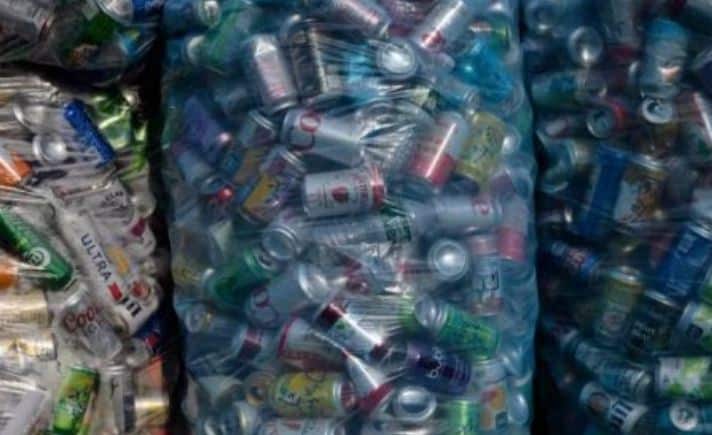India is estimated to have consumed 534 crore litres of alcohol in 2021 of which only about 20 per cent was packed in aluminium cans
Except for aluminium cans, all beverage packaging materials are adding tonnes of waste to the environment due to their poor potential for recycling, as per a new study by the The Energy Resources Institute which bats for incentivising sustainable packaging amid concerns about global warming.
India is estimated to have consumed 534 crore litres of alcohol in 2021 of which only about 20 per cent was packed in aluminium cans. Plastic bottles (PET) had the largest share at 38 per cent, followed by glass (32 per cent) and multilayered (13) packing. In the case of non-alcoholic beverages about 600 billion litres comes from either plastic or multilayer (tetra) packs.
The study found that about 80 per cent of the plastic bottles used for packaging beverages was downcycled while 10 per cent to 15 per cent was going to the landfill. In the case of glass, the recycling was low with only 40 per cent of the cullets recycled in the energy-intense exercise.
Recycling glass was challenging due to the sheer weight of the material. One tonne of glass contains only 300 kg cullets and 650 to 700 kg of sand. Even then, recycling glass after the fifth cycle becomes impractical due to the heavy costs involved.
An aluminium can, however, can be recycled at least 12 times without losses and requires about one third of the water in the process. Moreover, recycling the cans is economical compared to other materials. This is seen in the fact that about 90 per cent of the aluminium cans are recycled as against 60 per cent of glass bottles and 55 per cent of multilayered packs. Though 85 per cent of plastic bottles are downcycled, they require 350 per cent to 725 per cent more water compared to aluminium cans, the study said.
Souvik Bhattacharjya, senior fellow and associate director at TERI who led the study, said they have communicated the findings to the Karnataka State Pollution Control Board (KSPCB). “We need to create awareness among beverage manufacturers while requesting the government to bring in necessary changes in the policy,” he said.
Amit Lahoti of Ball Beverage Packaging said incentivising the use of aluminium and disincentivising non-recyclable materials was a key step going forward. “Once the government sets in motion rules like the extended producer responsibility for cans, GST exemptions based on the sustainability of the package of a beverage and other measures, it will guide the industries,” he said.
The study recommended excise duty exemption and GST exemption for aluminium cans, promotion of truly circular packaging solutions and a joint campaign by brand owners, government and substrate manufacturers.
Packaging 360 is a comprehensive knowledge sharing ecosystem for the Indian packaging industry. Our services include an online content platform to deliver news, insights and case studies; organising conferences seminars and customised training; Providing Bespoke Project Consulting, Market Research and Intelligence.







